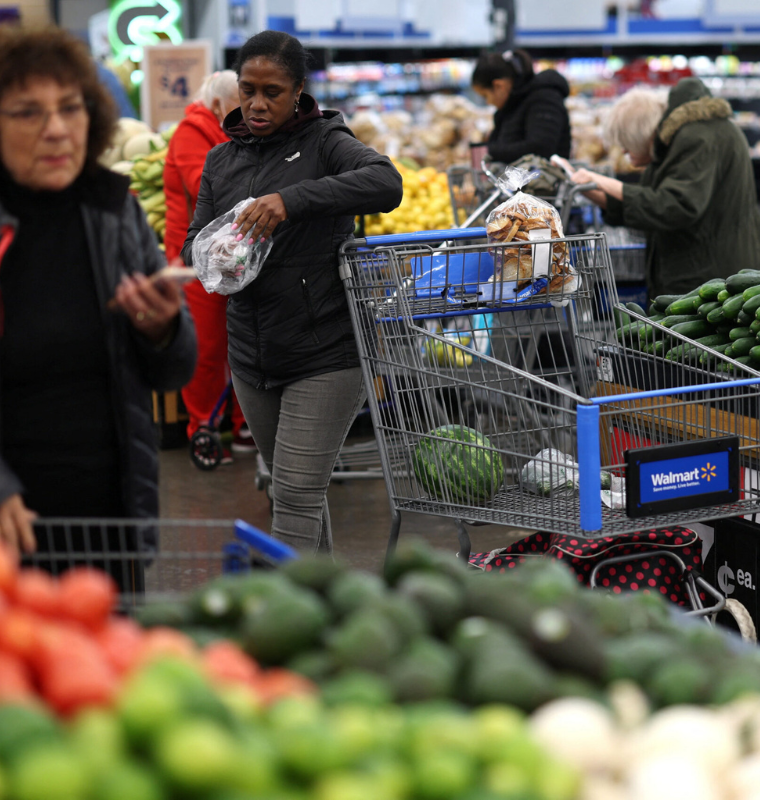Treasury Secretary Bessent Signals SNAP Food Aid Could Resume by Wednesday
Treasury Secretary Bessent Signals SNAP Food Aid Could Resume by Wednesday
By
Rachel Steinberg
Last updated:
November 3, 2025
First Published:
November 30, 2025

U.S. Treasury Secretary Scott Bessent speaks as he and U.S. Trade Representative Jamieson Greer hold a press conference on the sidelines of the IMF/World Bank annual meetings in Washington, D.C., U.S., Oct. 15, 2025. | Ken Cedeno | Reuters
The Supplemental Nutrition Assistance Program (SNAP), which provides critical food support to more than 42 million Americans, could resume as early as Wednesday, according to Treasury Secretary Scott Bessent, who made the announcement Sunday morning.
The update follows two key court rulings that ordered the Trump administration to release emergency funds to cover November’s food benefits, ensuring that millions of low-income families are not left without assistance during the ongoing federal government shutdown.
Court Orders Administration to Use Emergency Funds
On Friday, U.S. District Judges Jack McConnell of Rhode Island and Indira Talwani of Massachusetts ruled that the administration must unlock emergency reserves to pay for SNAP benefits. Judge McConnell emphasized that the payments should be made “as soon as possible,” while Judge Talwani directed the administration to confirm by Monday whether it would authorize at least partial SNAP benefits for November.
These rulings came just as the administration had been set to cut off all SNAP payments starting November 1, a move that risked worsening food insecurity nationwide. SNAP — formerly known as food stamps — helps millions of Americans afford groceries each month, particularly families with children, seniors, and people with disabilities.
Treasury Seeks Path to Resume Payments
Speaking on CNN’s State of the Union, Secretary Bessent confirmed that the administration will not appeal the court’s decision but noted that logistical steps still need to be taken before payments can resume.
“There’s a process that has to be followed,” Bessent explained. “We’ve got to figure out what the process is, but finding the funds to pay SNAP benefits by Wednesday could be done.”
His comments suggest that SNAP funding could be restored within 72 hours, provided the Treasury and the Department of Agriculture can coordinate the release of emergency reserves.
Trump Responds to Court Decisions
President Donald Trump addressed the issue on Truth Social Friday evening, signaling support for restoring benefits and blaming the ongoing disruption on what he called “Radical Democrats” in Congress for refusing to reopen the government.
“I do NOT want Americans to go hungry just because the Radical Democrats refuse to do the right thing and REOPEN THE GOVERNMENT,” Trump wrote. “Therefore, I have instructed our lawyers to ask the Court to clarify how we can legally fund SNAP as soon as possible.”
Broader Impact on Households and the Economy
The temporary suspension of SNAP benefits has already caused concern among retailers, food banks, and advocacy groups, who warn that delayed payments could impact millions of families’ ability to buy essential food items. The USDA typically disburses more than $6 billion per month through the program, and any disruption ripples through local economies — especially in lower-income areas where SNAP spending supports grocery sales and food distribution chains.
Economists have noted that SNAP plays a vital stabilizing role during economic slowdowns, acting as an automatic stimulus by keeping consumer spending steady. Prolonged interruptions, they caution, could weaken consumer confidence and increase reliance on emergency food aid.
What Happens Next
If Treasury and USDA officials finalize the payment process early this week, SNAP benefits could resume nationwide by midweek, providing much-needed relief for millions of households. However, with the government still partially shut down, long-term funding for the program remains uncertain.
Policy analysts expect the administration to continue using emergency financial mechanisms until Congress approves a broader budget deal. Until then, the restoration of SNAP — even temporarily — could help ease financial pressure for millions of Americans struggling to put food on the table.
Popular articles
Subscribe to unlock premium content
London’s Gourmet Playgrounds

From Bean to Buzz in Thailand

The Secret Life of Pop-Up Luxury Restaurants in Paris

London’s Gourmet Playgrounds

From Bean to Buzz in Thailand

London’s Gourmet Playgrounds









